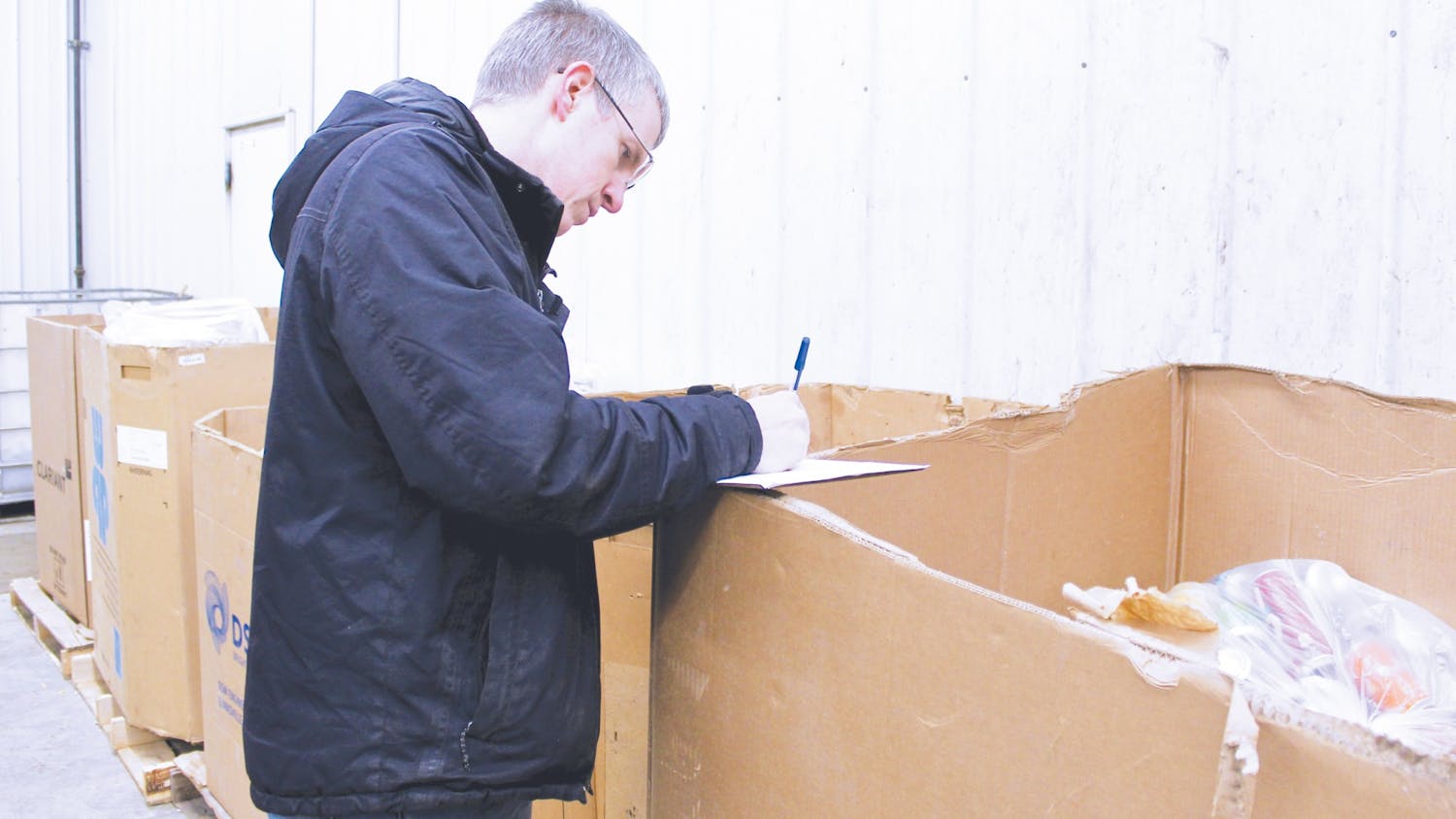At Taylor, the nearest recycling bin is always just around the corner. Many common spaces have lights set to timers or sensors. Sinks turn off and on automatically.
While Taylor takes strides to be more eco-friendly and encourage students to do the same, being away from campus can present a new set of challenges.
For example, a lack of access to affordable eco-friendly products, families not wanting to pay for trash companies to take away their recycling or a lack of space to grow food can be discouraging for students who are trying to change their consumer habits.
Assistant Professor of Sustainable Development Phil Grabowski recognizes these obstacles and has had to change some of his assignments for his students to fit pandemic guidelines. Students who were challenged to change one behavior to reduce their ecological footprint now found themselves taking different approaches.
“With the shutdown, some of them had to really change (their projects),” Grabowski said. “Because some of them were like, ‘Oh, I'm gonna walk to class instead of driving,’ and now, well, now nobody is driving. So, we're doing shorter showers . . . a really common one is turning light switches off . . . I got a couple students who are taking the time to focus on insulating their homes or working on their lawns to try and make them less fossil fuel intensive.”
One way Grabowski suggests making lawn care more eco-friendly is mowing less often or setting aside a part of the property for wildflowers to use less fertilizer.
One sustainable development major, senior Jourdan Lehman, has chosen to become more eco-friendly at home by minimizing garbage waste.
“We created a compost pile that we throw all of our leftover yard trimmings, vegetable cores, egg shells, coffee grounds . . . etc. into,” Lehman said. “I also started recycling here at home. It’s extremely easy and even if you don’t want to pay for the trash company to pick up your recycling, there are free places to drop off recycling, so just look around!”
Lehman says one of the biggest areas of the home that produces the most waste is the kitchen. She tries to reduce her waste by using reusable straws, cups and utensils.
She also recommends looking for plastic containers with a recycling symbol with a number one or two inside for recycling purposes.
“My advice would be to get creative,” Lehman said. “Now is the perfect time to learn how to make your own peanut butter, nut milks or meals. By cooking fresh you eliminate so much unnecessary packaging! Also, cooking and eating fresh helps you to eat healthier.”
Grabowski also reminds his students to be sensitive to the people that they are living with and how they accept or don't accept things. He emphasizes leading by example, even if others do not share the same values, and that ultimately the goal is to live in a way that is pleasing to the Lord.
Grabowski believes caring for the environment is a way to both honor God and love your neighbor, even if that means changing a small habit to help preserve creation. He emphasizes that one small good deed can make all the difference and to treat it as an act of worship.
“What's the difference of this one meal with paper plates? Now, it's not huge,” Grabowski said. “But when you add it up over lots of people, and over long periods of time, it actually makes a really big difference… in the same way we care about one person (through) little things that make a more loving world, it's not going to transform the world. Yet, it kind of does — one minute, one little interaction at a time.”



